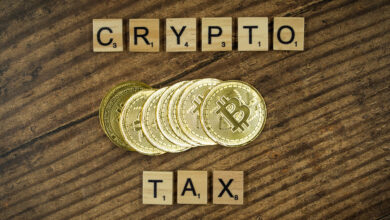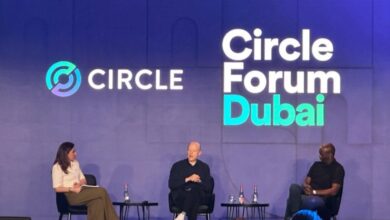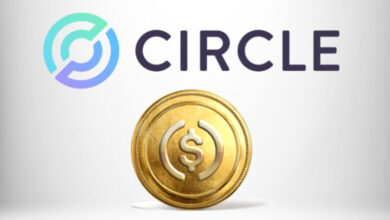Blockchain to play a role in Lebanon’s Digitization Strategy

Lebanese Minister of State for Information technology Minister Adel Afiouni talks to UNLOCK about his mandate to build the tech sector and digital economy
UNLOCK interviewed Lebanese Minister of State for Information Technology H.E. Adel Abdelatif Afiouni to talk about his views and efforts with regards to Lebanon’s Digital Transformation strategy, governmental and private sector and his view on how blockchain can play a role.
Minister Afiouni is an engineer who holds a degree in telecommunications from Ecole Nationale Supérieure des Télécommunications in Paris as well as a Master’s degree in Finance from University Pantheon in Sorboone. He spent most of his career in the banking sector before recently joining the government.
As Minister of State for Information Technology, H.E. is taking a very active stance when it comes to building a digitized knowledge sector in an effort to grow a digitized economy within Lebanon.
Lebanese Government Digitization strategy
He played an active role in the formulation of the Ministerial Committee for digital transformation chaired by Lebanese Prime Minister H.E. Saad Al Hariri. As Afiouni explains, “When we talk about Lebanon’s digitization strategy, it is actually split into two parallel yet interconnected strategies. The first one is the public digital transformation strategy that will aim to digitize governmental services and products whether it is G2C (government to citizen), G2B (government to Business) and G2G (government to government). This front will include developing a unified governmental portal, integrating infrastructure and services, and developing a digital ID for citizens among other projects.”
The sheer complexity of the digital transformation project within the government heralded the need for the creation of an Inter-Ministerial Committee chaired by the Prime Minister with members that include OMSAR (Office of the Minister of State for Administrative reform), Minister of telecom H.E. Mohamed Choucair, Minister of state for IT, Minister of Finance, as well as Deputy Prime Minister H.E. Ghassan Hasbani. H.E. explains, “In an effort to develop our digitization strategy we needed to create a clear governance model and the committee is here to make sure the execution among all stakeholders is carried out cohesively with full understanding of the roles, mandates, responsibilities, and accountabilities of each party. This will ensure there are no fragmented efforts. In addition being chaired by the Prime Minister ensures that decision making will be effective.”
The second layer of governance is the steering committee, which will develop the technical specifications, guidelines and KPIs required for the governmental digital transformation strategy. H.E. explains, “The steering committee is headed by OMSAR alongside the Ministry of state for IT. It will develop the plan and then every governmental administration moves ahead with the projects supported by OMSAR. OMSAR’s role is to support and provide capacity building for implementation.” He adds, “This role has historically been mandated to OMSAR and will remain as such.”
Digitizing Lebanon’s Economy and developing tech sector
As for the Ministry of State for IT, H.E. is focusing 75% of his efforts on the digitization of private sector and the development of a digital economy as well as growing a tech sector that can contribute to job creation and GDP ( Gross Domestic Production). Afiouni comments, “I have set four key priorities to develop the digital economy and tech sector in Lebanon. The first is ease of doing business, through agile government and legislation as well as incentives for corporations regardless of size to grow and encourage them to set up based in Lebanon. One of the main drivers for this in addition to infrastructure will be legislations and simplification of procedures when dealing with government. The second priority is ensuring startups at all stages have access to investment from diversified sources not just the banking sector, as banks don’t traditionally lend to non-asset businesses such as tech. We have a pool of capital whether through our Lebanese expat base or others that can play a strong role and we already have some good stories we can share.”
H.E. is also focusing on the exportation of tech products and services. He believes, “We need to develop policies that will support the exportation of digital services and solutions in the same way we have developed policies for physical goods.” Nonetheless H.E. is also prioritizing the attraction of international tech companies to Lebanon from startups to well established entities. He states, “ One of my main KPIs is job creation and by attracting companies we not only retain our talent but also develop this sector. We are working closely with IDAL on this to promote Lebanon as a destination for tech companies. Some successful companies such as Murex already has set up its headquarters in Lebanon and employed over 500 people. We do have some of the ingredients already in the country and we hope to tick more boxes.”
He believes execution will be a key factor in the success of the strategy, and that within 2-3 years Lebanon will start to see the fruits of all these efforts. He explains, “Today the tech sector contributes around 3% to GDP according to Mckinsey, we hope that by 2025 it will reach 8-10% through advanced legislations, policies, regulations and encouragement of Intellectual Property creation.”
The Role of Technologies Blockchain, AI, IoT
As for technology enablers that will be utilized in the digitization efforts, H.E. states that at this stage of the plan no final decision on these have been taken. In his opinion, Blockchain will be used as other technologies including AI and IoT. He explains, “Blockchain obviously a new technology that people are saying will revolutionize the way we do business in my view will be at the forefront, and allow us to leapfrog. One example could be Digital ID. Five years ago we couldn’t have used blockchain but now we can and have a more reliable, safer and efficient product.” He adds, “There are a lot of areas where in my opinion we will utilize blockchain for governmental products and services even though we have not fully discussed technical specifications. Blockchain and other technologies will allow us to develop efficient, transparent offerings in an era of digitization.”





